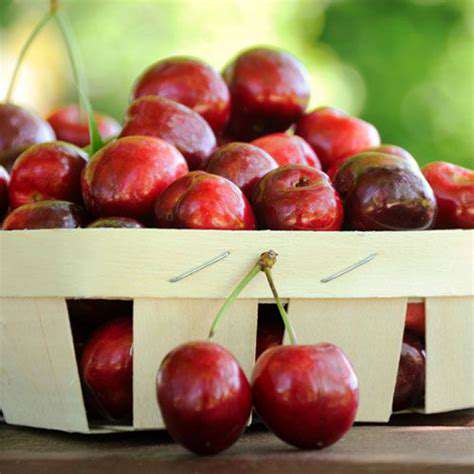Low Sugar Desserts: Naturally Sweetened Treats
Jun 23, 2025 / btwgardenmachine/

Harnessing the Health Benefits of Fruits
Fruits are nature's candy, packed with vitamins, minerals, and antioxidants that contribute significantly to overall health. Eating a diverse selection of fruits strengthens your immune defenses, making you less susceptible to common illnesses. Beyond immunity, these natural powerhouses deliver crucial nutrients that fuel cellular processes and sustain energy levels throughout the day.
Many fruits contain substantial fiber content that supports digestive health by preventing constipation and maintaining regularity. This same fiber creates a sense of satiety, which proves valuable for those managing their weight. Regular fruit consumption has been linked to lower risks of developing heart disease and certain cancers.
Exploring the Diverse World of Fruits
The fruit kingdom offers an astonishing array of flavors, textures, and nutritional profiles. Strawberries burst with juicy sweetness while citrus fruits deliver a refreshing tang that enlivens any dish. This incredible variety opens endless possibilities in the kitchen, from vibrant fruit salads to decadent pastries.
The brilliant hues of different fruits transform ordinary meals into visually stunning presentations. Each variety contributes unique textural elements and flavor notes that elevate simple dishes to gourmet experiences.
The Role of Fruits in Culinary Delights
Fruits serve as more than just healthy snacks; they're essential components in countless recipes. From homemade preserves to artisanal tarts, fruits provide natural sweetness and complex flavor dimensions to desserts.
Their culinary applications extend far beyond sweets—fruits add brightness to savory dishes through salsas, chutneys, and innovative salad combinations. The contrast between sweet fruit and savory ingredients creates memorable dining experiences.
The Impact of Fruit on Digestive Health
Dietary fiber from fruits plays a vital role in maintaining digestive wellness. This natural fiber promotes regular elimination while nourishing beneficial gut microbiota. Including various fruits in your diet helps cultivate a balanced gut ecosystem essential for overall health.
The Nutritional Value of Different Fruits
Each fruit variety offers a distinct nutritional profile. Berries, for instance, contain powerful antioxidants that combat cellular damage, while citrus fruits provide substantial vitamin C to boost immune function.
Understanding these nutritional differences allows for creating targeted dietary plans that address specific health needs. Incorporating seasonal fruits ensures access to peak nutritional content throughout the year.
Fruit-Based Beverages: Refreshing and Nutritious
Fresh juices, blended smoothies, and infused waters present delicious methods for increasing fruit consumption. These beverages offer concentrated nutrition while serving as satisfying alternatives to sugary drinks. Hydrating with fruit-infused creations provides essential vitamins while satisfying thirst naturally.
The Sustainability of Fruit Production
Environmentally conscious farming practices ensure the future availability of nutritious fruits. Supporting sustainable growers helps preserve ecosystems and promotes responsible land management. Opting for locally grown fruits minimizes transportation emissions while supporting regional agriculture. Thoughtful consumer choices contribute to a more sustainable food supply chain.
Sweetening with Honey, Maple Syrup, and Dates: Exploring Natural Alternatives
Honey: A Versatile Natural Sweetener
Bees transform floral nectar into honey, creating a sweetener with remarkable depth of flavor. Each honey variety reflects its botanical origin, offering unique aromatic notes from delicate blossoms to robust forest honeydew. This natural sweetener enhances everything from baked goods to salad dressings while providing beneficial antioxidants.
Beyond culinary uses, traditional medicine has long valued honey for its therapeutic potential. However, individuals should consult healthcare providers before using honey medicinally, as responses can vary significantly.
Maple Syrup: A Taste of the Woods
The concentrated sap of maple trees yields this distinctive sweetener with caramelized wood notes. Its velvety texture and amber color make it ideal for breakfast dishes, while varying grades offer flavor intensity options for different recipes.
Maple syrup production requires meticulous sap collection and evaporation, emphasizing the importance of sustainable forestry practices to preserve this traditional craft.
Dates: A Sweet and Nutritious Fruit
These naturally sweet fruits serve as excellent sugar substitutes in both sweet and savory preparations. Their concentrated sweetness works well in energy bars, smoothies, and even savory tagines, while providing quick-release energy and dietary fiber.
Comparing Sweetness Levels: Honey, Maple Syrup, and Dates
These natural sweeteners vary considerably in sweetness intensity. Honey typically measures highest, while maple syrup offers more subtle sweetness. Dates provide concentrated sweetness that can be adjusted through preparation methods.
Understanding these differences helps achieve perfect flavor balance in recipes. Experimentation reveals how each sweetener interacts with other ingredients.
Health Benefits of Natural Sweeteners
Unlike refined sugars, these natural alternatives deliver additional nutrients and antioxidants. However, they should complement rather than dominate a balanced diet. Current research continues to explore their full health implications.
Practical Applications in Cooking and Baking
These versatile sweeteners enhance everything from breakfast items to gourmet sauces. Their unique properties allow for creative recipe development and personalization of flavors.
Sustainability and Sourcing Considerations
Conscious consumers should investigate production methods and sourcing practices when selecting natural sweeteners. Supporting ethical producers helps maintain sustainable agricultural systems and traditional production methods.
